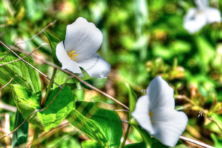The Intelligence of Ants and Happiness of Coffee Drinkers
- Share
- Tweet
- Pin
- Share
• The following was written by Frederick FitzSimons, the late director of the Port Elizabeth Museum in South Africa. The article was written in 1923 and was reprinted (Nov., 4, 2011) in Farmer’s Weekly, a publication for farmer’s of South Africa, Botswana, Swaziland, and Namibia. Thanks to Chris and Ed Movall for bringing me this snippet from Africa.
“Ants often live in ‘cities’ with populations as large as those of London, Paris, or Peking, and they not only live in perfect harmony, but they are all thoroughly organized communities, laboring for the common good. They never quarrel among themselves – indeed there appears to be no friction because they have no self-interest to serve and no axe to grind at the expense of other members of the community.
“It is now established as a fact that ants can communicate and receive instructions and use some sort of language which is understood by them. Indeed, they seem to be able to communicate news to one another as easily as we do among our own people. Gathering in a group for their own ‘parliament’ they seem to talk to one another.
“When a store of food is discovered by a foraging ant, it first takes its fill and then hurries home. On the way, it tells every ant of the same city it meets. These at once seek out the food. On arriving home, the news is spread and a column of ants departs, led by the finder of the food. Should the store be a large one, every available carrier goes forth to bring in a load.
“That ants talk with their antennae seems not to be in doubt. They can communicate facts, describe localities in detail, and import a variety of information with the greatest of ease and accuracy. They receive the reports of scouts, debate the pros and cons, plan out expeditions and engineering schemes, and lay out a city with all its connecting intricacies, just as we do.
“Sufficient evidence has been amassed to prove that ants are highly intelligent, that they can and do reason from cause to effect, and that they apply the knowledge gained to practical purposes.”
(Why can’t we be more like ants?)
• A mass extinction of life on the planet occurred at the end of the Permian age, some 252 million years ago. Geochemical and paleontological data agree that about 90 percent of marine life and 70 percent of terrestrial species perished. Available information indicates that the period coincides with decreased oxygen levels in shallow marine environments and expansive wildfires on land. There is speculation that environmental and climatic changes precipitated the loss of life, and that a massive release of carbon dioxide and methane were responsible. Extensive volcanic eruptions may have played a major role in initiating global extinction of animal and plant life. (Science, Dec. 9, 2011: Shen et al, Science online, Nov. 17, 2011)
• A recent long-term study of factors that affect women’s health found a reduced risk of depression among coffee drinkers. Since decaf coffee did not show a similar effect, the conclusion was that caffeine was the key factor. Tea may have similar effects, but black tea has only about half the amount of caffeine as coffee, so the effect would be reduced. Coffee contains antioxidant compounds called polyphenols that may play a role in regulating blood sugar and preventing blood clots. A 2008 study of nearly 130,000 people were followed for 20 years, and the data indicated that coffee consumption was correlated with a reduced risk of heart attack and stroke, which meant that coffee drinkers lived longer. Is caffeine addictive? Not in the usual sense, but a heavy coffee drinker who gives up the drink may show mild withdrawal symptoms (headache and morning lethargy) for a few days. (Consumer Reports on Health, Jan., 2012)


